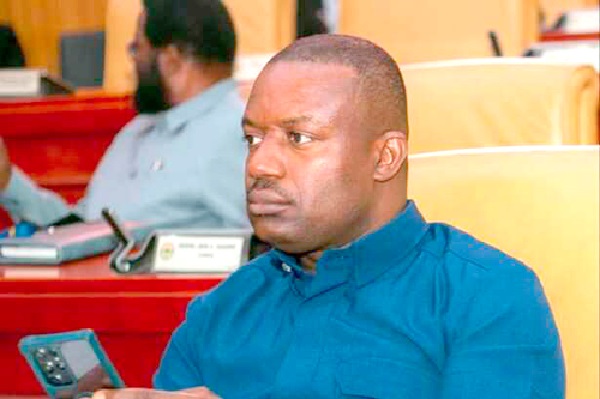
ACEP boss calls for policy reorientation amid sector inefficiencies
Executive Director of the Africa Centre for Energy Policy (ACEP) Benjamin Boakye has sounded the alarm on the need for a policy reorientation in Ghana's energy sector.
According to Boakye, inefficiencies in decision-making and action have resulted in significant financial burdens on Ghanaians.
He specifically singled out the Electricity Company of Ghana (ECG) as a major culprit, citing instances where the company flouted presidential directives with impunity.
He recalled an incident in which the president directed that all revenues go into the Consolidated Water Management (CWM) account, only for the ECG manager to disregard the directive.
“This lack of accountability has led to the accumulation of debt, which is then passed on to the public through taxes; this cannot continue to be "business as usual" for appointees; those responsible for the mess should be held accountable,” he told the Graphic Business in an exclusive interview in Accra yesterday.
Mr Boakye's comments follow the recent vetting of the Energy Minister, during which issues of sector inefficiencies and debt accumulation were discussed.
According to him, as the government moves forward, it remains to be seen whether the necessary reforms will be implemented to address these pressing concerns.
Discipline and inefficiency
At the vetting, Ghana's Minister-Designate for Energy, John Jinapor, identified lack of discipline and inefficiency as the two major challenges facing the country's power sector.
Mr Jinapor revealed alarming statistics, including the fact that out of the GH¢1.3 billion collected in power revenues, only GH¢800 to GH¢850 million made their way into the cash waterfall mechanism.
“Nearly GH¢400 million Ghana cedis fail to enter the cash waterfall mechanism,” he stated, explaining the loss occasioned by what he described as malfeasance, which he vowed to nip in the bud if approved.
Speaking at his vetting in parliament last Monday, Mr Jinapor stated that as part of his reform agenda, he plans to halt all payments for supplies to the Electricity
Company of Ghana (ECG) and consolidate the company's fragmented financial system, which currently operates over 70 accounts.
This move aims to improve financial transparency and discipline, enabling the utility to allocate resources better and prioritise investments.
In addition to these reforms, Mr Jinapor promised to secure a strategic partner to collaborate with the Tema Oil Refinery in refining its 45,000 barrels of crude oil.
He also hinted at plans to merge the Volta River Authority (VRA) and Bui Power Authority (BPA), although he assured that these entities will not be privatised.
Sole sourcing and power consistency
Mr Jinapor vowed not to engage in sole-sourced contracts, a practice that has plagued previous administrations. Instead, he promised to promote competitive bidding to ensure value for money.
The minister-designate also addressed the issue of inconsistent power supply, revealing that Ghana has 5,260 megawatts of available power, 4,800 megawatts accessible for usage, and 4,100 megawatts currently in use.
He stated that recent upgrades to power lines from 160kg to 313kg have positively impacted the sector. However, a deficit remains, with a 40-60% shortage of fuel, including heavy fuel, light fuel and liquid fuel.
He attributed this shortage to outstanding debts owed to suppliers, such as Karpower ($737 million), Tullow ($100 million) and other Independent Power Producers (IPPs). He identified debt repayment as the biggest challenge facing the energy sector.
Inefficiency
The minister-designate stated that the Electricity Company of Ghana (ECG) failed to collect a whopping 40% of revenue generated from power produced by local power producers into state coffers.
He added that this cannot continue and vowed to instil discipline and efficiency into his administration.
“My job is a difficult one, but I am ready to step on toes to cut losses, bring efficiency and ensure discipline in the sector,” he stated.
This staggering loss, according to Mr Jinapor, significantly contributes to the country's debt crisis, particularly due to unaccounted power sales. The minister-designate revealed that Ghana currently owes power producers a staggering $3 billion.
Faulty meters
Mr Jinapor also highlighted the issue of faulty meters, stating that out of 5.2 million meters in use nationwide, only 4.8 million are active, while three million are not functioning properly. To address this challenge, he proposed replacing 2.9 million meters.
In a bid to satisfy market demands, he suggested a novel approach: selling meters to the general public at affordable prices, rather than providing them for free. This move aims to promote accountability and reduce revenue losses.